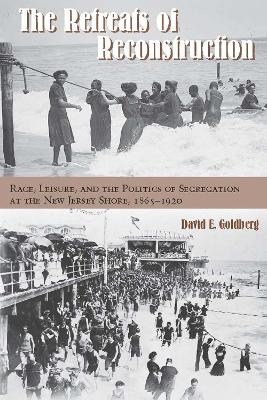Reconstructing America
1 total work
Beginning in the 1880s, the economic realities and class dynamics of popular northern resort towns unsettled prevailing assumptions about political economy and threatened segregationist practices. Exploiting early class divisions, black working-class activists staged a series of successful protests that helped make northern leisure spaces a critical battleground in a larger debate about racial equality. While some scholars emphasize the triumph of black consumer activism with defeating segregation, Goldberg argues that the various consumer ideologies that first surfaced in northern leisure spaces during the Reconstruction era contained desegregation efforts and prolonged Jim Crow.
Combining intellectual, social, and cultural history, The Retreats of Reconstruction examines how these decisions helped popularize the doctrine of “separate but equal” and explains why the politics of consumption is critical to understanding the “long civil rights movement.”
